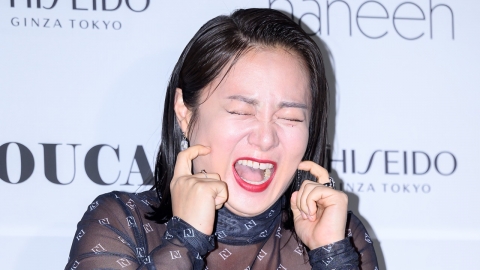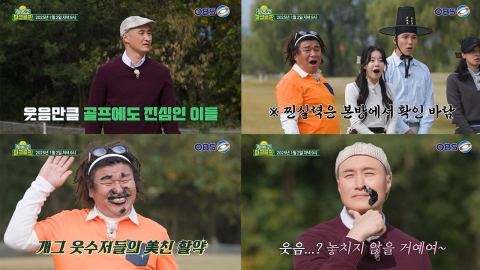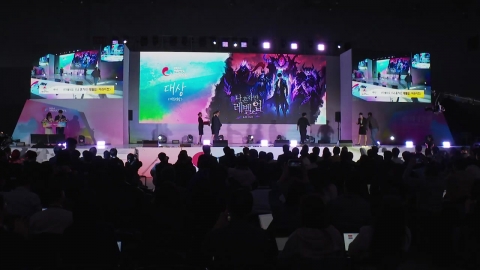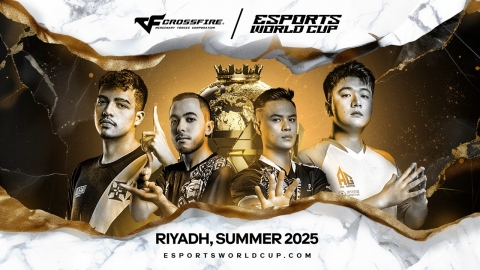Senior Civil Servant Corruption Investigations Unit, 3rd summons...Yoon said, "I don't have the right to investigate."
■ Host: Anchor Yoon Bori, anchor Kim Myung-geun, anchor
■ Starring: Attorney Kim Sung-hoon
* The text below may differ from the actual broadcast content, so please check the broadcast for more accurate information. Please specify [YTN Newswide] when quoting.
2024-12-28 16:15:19
[Anchor]
Meanwhile, the prosecution handed over former Defense Minister Kim Yong-hyun to trial for the first time among those related to emergency martial law. The contents of the public indictment are causing a stir. Let's take a look at the various legal issues brought about by the martial law crisis. Attorney Kim Sung-hoon is here.
Hello. Yesterday, for the first time in its constitutional history, the bill to impeach the acting president was passed. At the same time, the power of the people said that they would immediately apply for a power dispute trial and a provisional injunction to suspend its effectiveness. Would the court accept it?
[Kim Sung Hoon]
First of all, there is no precedent at all because it is so unprecedented, but basically, it seems that the possibility of acceptance or that part of the hearing is unlikely to proceed quickly. If the provisional injunction is accepted or so happens, the acting authority will return, but there are parts that cause confusion once again. Above all, various constitutional scholars are expressing opinions related to the constitution, and it can be divided into at least two. Is an acting authority a specific position? Second, if it's not the position of acting authority, it's just about what the quorum is and what the quorum is for each reason. To start with, I don't see acting as a constitutional position, most of them. That's what the majority of the constitutional law sees.
However, there is a minority opinion that if a reason for impeachment occurred while performing a certain role as acting authority, it could be an aggravated quorum in such a case. However, there is no particular disagreement that there is a problem with applying the prime minister's quorum to the impeachment of the position of prime minister in the case of unconstitutional or illegal problems during the prime minister's time. Therefore, in conclusion, there is a high possibility that the respondent will be dismissed because the respondent is not himself/herself during the dispute or provisional disposition. In addition, considering the comprehensive contents of the hearing itself, I think it is unlikely that the court will cite this and reverse it at the present time.
[Anchor]
The Constitutional Court previously said it would put the impeachment trial of the president first, but the ruling party filed an injunction to suspend the effect of Prime Minister Han Deok-soo. If this happens, will you be able to judge quickly?
[Kim Sung Hoon]
In principle, in the case of provisional disposition, it is a case that requires urgent action, so it is to be handled first. However, why did the Constitutional Court say that the impeachment trial of the president would be the top priority? This is because it is the most important issue in the constitutional order of our country. The most important issue is that the Constitutional Court Act and the function of the Constitutional Court are ultimately functions to protect the Constitution. In that regard, the situation in which the president, who is the chief of the Constitutional Guard, was impeached by the National Assembly for doing something unconstitutional or illegal is a very important constitutional crisis.
In this situation, taking action to prevent the chaos of a democratic republic by clearly stating whether to dismiss it or not is the first object of existence that the Constitutional Court should give, so the constitutional interest in this area is overwhelmingly high, so I think it is more likely to put more energy into the impeachment trial in the future and proceed quickly.
[Anchor]
The most important issue in the National Assembly's impeachment of Prime Minister Han Deok-soo was the appointment of a constitutional judge. So, what choice do you think acting Choi Sang-mok should make?
[Kim Sung Hoon]
There's a reason why, as I said, we started discussing this case. We will also deal with the prosecution's investigation later, but the president has declared emergency martial law and is being investigated for rebellion in the process. Currently, what the president has committed is basically a crime, so the hearing on what legal punishment to take and how to dismiss it should proceed quickly. In order for this to proceed properly, the nine-member system needs to be completed quickly. It is true that the Democratic Party of Korea is politically responsible for the failure to complete the nine-member system quickly, but what is desperately needed at this point is to properly complete the constitutional protection function created by our Constitution, the Constitutional Court.
At least I've rarely seen any of the constitutional scholars or lawyers come up with a formal opinion that a constitutional judge should not be appointed. At least the Constitutional Court judges are appointed, and especially for the appointment of the National Assembly's recommendation, there are people who have been recommended by both the ruling and opposition parties. Since the confirmation hearing for that has already been passed, it can be seen that the hearing needs to proceed. Conversely, if an appointment is not possible under the acting system, what will happen is that not only three people cannot be appointed, but two constitutional judges will expire in April. And these two are even down to the president. If I told you that there is no disagreement on appointing the National Assembly's recommendation share, there is considerable disagreement on the authority to appoint the president's recommendation share. In other words, it can be seen that the more important theory is that the acting president should refrain from exercising the president's unique personnel authority.
What will happen if this happens? There are four constitutional judges. Under the Constitutional Court Act and under our Constitution, more than six people are required to dismiss the President. Then, in the absence of more than six judges, this state continues to revolve. How long will it be? It revolves until the end. Until the end of his term.
Judging what is imperative for our country in maintaining and protecting the constitutional order of the Democratic Republic, I think the answer is clear. Of course, there can be various political advantages and disadvantages, criticism of the background, of course.
By the way, the Constitutional Court is not functioning at all because there are no other judges due to the delay in the impeachment trial without the acting president appointing a constitutional judge, and the situation that it will not protect in response to the constitutional guardian's response in a situation where it cannot function. In this situation, it means that all citizens will enter a political civil war and continue to go for many years to come. I think we should state our position on this part.
It is said that constitutional judges should not be appointed under the power of the people, so would it be desirable for our constitutional order to continue to maintain a situation in which everyone cannot be fired or judged after the term ends? as to whether it is intended to do so. And that's Choi Sang-mok, deputy prime minister for economy, now acting. I think it is necessary to clarify the position on whether or not the decision is helpful in resolving economic stability and uncertainty in our country, which was emphasized yesterday.
[Anchor]
There is a saying that it is not a right, but an obligation, for the president to appoint a constitutional judge recommended by the National Assembly. How about this part?
[Kim Sung Hoon]
That's right, because in our legal provisions, we can do it and we can do it very differently. You can do something. It's up to you. I have to do something, it's my duty. It is said that the president appoints it if the National Assembly notifies it after recommending it to the National Assembly and obtaining consent for the confirmation hearing. In other words, it is natural for the National Assembly to appoint people recommended by the National Assembly in the constitutional protection agency called the Constitutional Court, rather than rejecting the appointment itself and the so-called right to veto legislation. Above all, the best value in interpreting all of these things is which is the best value interpretation to defend the constitution of the Democratic Republic. If the acting president fails to appoint him or her, in conclusion, the acting president could completely neutralize the Constitutional Court in this situation.
Then, the impeachment was filed, but there is no judge who can be tried by the Constitutional Court. Wouldn't it be strange if you said you can't appoint an acting authority, but suddenly you said you can appoint from April? If this happens, it's like just turning off or shutting down one of Korea's constitutional protection functions. There should be an alternative. Of course, Prime Minister Han Deok-soo said he would do it if the ruling and opposition parties agreed on it.
It's not a question of whether to recommend a specific person or not, but from the standpoint of the people's power, the acting authority is not at all authorized to appoint. It means there isn't. If it's a situation where someone says there isn't, but just that there isn't, then the Constitutional Court has no choice but to stop completely in this situation. With all due respect, I know that there are various calculations in each political field, but from the perspective of the people and businesses, we cannot help but ask how long and how we will lead this situation. Really. The Prime Minister and the Deputy Prime Minister say they do it only for the stability of the people, people's livelihoods and the economy. To that end, are you going to lead the Republic of Korea to the end of the abyss while completely neutralizing the Constitutional Court? I don't know. This is not a matter of left and right. From the moment the function of our Constitutional Court is organized by saying that it cannot be appointed by the acting authority, it may be completely stopped. Then, because it is a very dangerous constitutional situation that this so-called quasi-governmental state can continue completely without promise, I think it is very seriously irresponsible to say that the acting president cannot appoint without a solution.
[Anchor]
On the other hand, the first trial of the impeachment trial of Yoon Suk Yeol's president was also held yesterday. It was the preparation date for the defense, but the defense team appeared only when the trial was imminent, and he was appointed and attended the defense date. Did you attend because you thought there would be some disadvantages if you didn't attend?
[Kim Sung Hoon]
Basically, it is intended to deliberately delay the trial. Therefore, I think that the Constitutional Court's impeachment trial itself may show such a mode of ignoring or delaying the impeachment trial itself, so I think they came out with a senior appointment. However, in principle, the preparation date is about who will be called to conduct a hearing on this part in the future and how to submit evidence, so if you don't participate in this, the respondent himself will be greatly disadvantaged, so at least until the preparation date.
[Anchor]
Let me ask you one more question. Didn't you say that Choi Sang-mok's role is very limited because he is the acting president? What kind of interpretation would actually be possible legally?
[Kim Sung Hoon]
There are very few legal precedents, but it is also very deeply connected to the first question. Acting power is a completely different concept from the vice president's succession to the presidency. In the case of the United States, for example, if the president suddenly stands up and an accident occurs, the vice president succeeds the presidency. Then he becomes president.
If it's such a concept, acting is not such a concept, but acting as an acting president, and acting as the prime minister, then the deputy prime minister for economy, and then the deputy prime minister for education. To be precise, the position itself is the prime minister, but it is acting on behalf of the president. If the prime minister does not have the position, the deputy prime minister acts as the prime minister and the president. To be exact, you will play three roles per person.
Deputy Prime Minister for Economic Affairs Choi Sang-mok said in principle that it is difficult to actively exercise the authority because he plays a limited role in the very democratic legitimacy of acting in this area. It seems that he has expressed his position that he cannot make political judgments or active decisions in that regard.
However, the announcement seems to have announced its position before the impeachment vote on Prime Minister Han Deok-soo, which can be seen as a request not to expect him to exercise his duties as the so-called opposition party or the people generally demand by the opposition party or the National Assembly.
[Anchor]
To talk about the impeachment trial again, the president said that the Constitutional Court's speed of judgment is fast, and he also took issue with the document delivery process. Do you see it as a strategy to tackle procedural problems?
[Kim Sung Hoon]
It seems to be that way. Basically, in terms of procedural matters, all national and public actions are made in writing. In the case of a trial, it is supposed to be delivered in writing that this trial has actually begun, and the trial proceedings proceed by receiving it. However, it seems that the Constitutional Court has served it 11 times so far. News of the delivery came out every hour of every day, refusing to receive the delivery, and as a result, this part was sorted out by the consideration of the delivery. However, it seems that the Civil Procedure Act stipulates the insufficient part of the Criminal Procedure Act for the service of the Constitutional Court, but now it is said that the service itself is inappropriate.
To start with the conclusion, you can think about why you're serving it. In other words, if you are not aware of the fact that such a referee itself has been raised, the exercise of the right to defense will be hindered. So I have to let you know this, but I'm not informing you by text or news, but I'm doing it to prove that I've officially notified you. I didn't know because of this that the president was suspended from office, received a resolution, and that the impeachment trial was going on. for not being duly served That would be a big problem. But that can't be the case, can it?
This procedural defendant's right to defend is seen in comparative sentences, such as the constitutionality and importance of this procedure.
In a national situation, so the decision-making about whether a president has committed an unconstitutional, an offense and should be removed for that is in our national interest if we proceed slowly for years? No. Since it is a very constitutional crisis, the Constitutional Court should proceed quickly and with all its national power.
If you are not aware of these judging procedures for some reason, you may not know, but in fact, you continue not to receive them. And I don't know if he is a lawyer or legal advisor before he appoints a lawyer, but if the lawyer is even holding a press conference for foreign media, I think the Constitutional Court is unlikely to accept such a protest as a result.
[Anchor]
In this situation, the Constitutional Court decided to hold a second hearing preparation date on the 3rd of next month. The National Assembly filed witnesses for 15 people related to martial law, including former Minister Kim Yong-hyun. And I also applied for the investigation data on this part as evidence. To what extent will these parts affect the impeachment trial?
[Kim Sung Hoon]
I think it will have a very important impact. There are not many reasons listed for this impeachment, but only one, the crime of rebellion, is the key issue. In the end, there seem to be a number of issues, but the very key issues are summarized in some ways. Did you try to undermine the constitutional order by mobilizing military forces for the purpose of the constitutional controversy? The key issue here also becomes very simple. Did you want to block the National Assembly? Did he physically try to prevent lawmakers from voting to lift martial law? The third is, after all, whether lawmakers, constitutional institutions, the Central Election Commission, the speaker of the National Assembly, and lawmakers were illegally arrested and imprisoned.
In the end, the prosecution's announcement yesterday shows that the indictment against former Minister Kim Yong-hyun is based on statements made by the chief of the National Police Agency, the chief of the Seoul Metropolitan Government, the commander of the Special Forces, and the commander of the Capital Defense Command. If those parts are presented as evidence at the Constitutional Court and come out as direct testimony at the hearing, there is a high possibility that the impeachment trial will accelerate in the future.
[Anchor]
Meanwhile, the president will appear in person at the impeachment trial to plead. There was a story like this. If this happens, I think there will be pros and cons. What do you think?
[Kim Sung Hoon]
First of all, I'm worried about the pros and cons. In principle, the Criminal Procedure Act is applied mutatis mutandis, so the parties themselves must attend the hearing date of the impeachment trial. However, it is possible to proceed with the trial even if you are not present. So I think I can make various arguments on my own, but looking at the recent publications of various statements after the emergency martial law, it seems that there were more political arguments than legal ones.
So in conclusion, the impeachment trial is very simple in a way, especially the charge of rebellion. Has he ordered lawmakers to block and drag down their votes? There are statements from the police chief, the Seoul Metropolitan Government chief, the Special Forces commander, and the Capital Defense commander that he has been ordered, but the president says he has never said that at all.
It would be helpful if you could clearly reveal those contradictions on your own, but if you don't, I think the trial itself is likely to be disadvantageous, especially if you want to serve as a venue for political propaganda.
[Anchor]
In the midst of this, the prosecution released the indictment yesterday when it handed over former Minister Kim Yong-hyun to trial. But there are a lot of shocking things that came out here. Can you explain it to me?
[Kim Sung Hoon]
Former Minister Kim Yong-hyun disclosed the details while prosecuting him for engaging in an important mission of rebellion and obstructing the exercise of rights to abuse his authority.
The conclusion was a summary of what we have investigated so far. In short, as I said earlier, the key was whether there was such an intention and action to stop the constitutional function of the state and make it promiscuous with artificial power. In this regard, there are many carefully planned riots that involve a total of more than 4,500 troops, which correspond to insurrection activities for the purpose of the National Constitution.
The most important thing is that the National Assembly's resolution is fundamentally blocked, arrested, and most of all, arrest is not improvised, but proclamation No. 1 itself is very unconstitutional. If there is a constitutional scholar who says that decree No. 1 itself is not unconstitutional, I think it is good to make a public statement. The president does not have the power to suspend the functioning of the National Assembly. There is no such thing as the right to dissolve the National Assembly. However, the parts that suspended the function of the National Assembly and ordered the arrest of key figures. And in particular, specific instructions aimed at preventing the voting rights to lift martial law or physically blocking and drawing out the functions of the National Assembly to vote on the lifting of martial law. For example, stamp the door with an axe and pull it out. Or at least four people carry each other and pull him out. In particular, if these instructions were not made by others, but by the statements of the defense commanders and special forces commanders who are currently under investigation as defendants, it will eventually be a very important data in acknowledging the core purpose of the civil war.
The prosecution's disclosure of these details shows that it has secured all the key evidence and evidence needed to prove and confirm the current allegations based on what it has investigated so far.
[Anchor]
As the president's lawyers attended yesterday, they began to respond to the impeachment trial in earnest, but they are still not cooperating with the investigation, right? Yesterday, the police attempted to seize and search the Samcheong-dong safety house, but it was not done properly due to a conflict of opinion with the security service. Are the police now paying attention to Anga Hoe-dong?
[Kim Sung Hoon]
That's right. There is a precedent in the past that the purpose of the national constitution is the content of the act, and that the cause of the act may result in the collapse of the constitutional order, which can be recognized when fairly careful preparation is made. That's why it's very important from when to when this was prepared. As for the contents of the prosecution's indictment, in the end, discussions on this content began in March. In particular, it seems to have secured a concrete statement that it is ready in earnest from November. If so, it is necessary to secure data on who came in and out as evidence that can actually match that statement. Basically, in the process of executing a search warrant presented by the judiciary, there is a part that requires permission from the person in charge that there is a special reason for national security under the Criminal Procedure Act, but on the contrary, paragraph 2 says so, in the same clause. Unless there is a significant national interest, the person in charge must accept it. There was something like that.
In the end, if cooperation is not made in this area, it can lead to additional legal problems by denying the validity of the warrant issued by the separation court itself.
[Anchor]
The Senior Civil Servant Corruption Investigations Unit notified President Yoon of the third summons to attend by tomorrow morning. There are a lot of opinions that he will not be present. If that happens, an arrest warrant will eventually be requested, these are the prospects. What will the court do?
[Kim Sung Hoon]
There will be a lot of concerns about the request for an arrest warrant and whether the court will issue it. However, the prosecution's announcement of the investigation yesterday seems to be a very important watershed. Because we actually have to reverse the calculation practically. Because an arrest warrant is a very temporary detention, and if you refuse to attend more than once or if you want to continue to refuse to attend, you will be forced to attend in that case and an arrest warrant will be issued to proceed with the investigation. After the arrest warrant is issued, an arrest warrant must be requested within a certain period of time and an arrest warrant must be issued.
Finally, the arrest warrant must be extended and prosecuted before the period is completed. If the investigation is quite progressive and the investigation of the important mission worker of rebellion is underway and the evidence is secured, it can be seen that such processes can be carried out right now, but if not, such investigations will need to proceed further. In that respect, the key statements of the virtually important mission workers in the prosecution. It seems that there is a possibility that an arrest warrant may be issued if the activities, call details, and communication of the arrest team are secured as evidence from the list of the National Assembly resolution, arrest of lawmakers, detention of members of the National Election Commission, physical mobilization using detention, and detention.
However, since there are so few precedents in the process, the court has no choice but to carefully consider conflicts in the execution process and these issues. However, we need to understand the characteristics of rebellion. The president has a very strong fluoridation privilege. Nothing is prosecuted while in office except for the crimes of civil war and foreign exchange. It's the same thing with a lot of serious crimes. Nevertheless, the fact that prosecution is possible in the case of civil war and foreign exchange crimes means that compulsory investigation is possible while in office and punishment is possible.
This is because civil war, common to foreign exchange crimes, can break down the basic order of the democratic republic itself. In that case, the Constitution opened the way for the state to operate normally and conduct the necessary investigations strictly. In that regard, if prosecutions continue to be made against important mission workers as they are now, and important mission workers state that they have been instructed to arrest, drag out, or block lawmakers as the head of the civil war, we cannot rule out the possibility of forced detention and even recruitment in such a situation.
[Anchor]
Let's stop here. So far, I've been with lawyer Kim Sung-hoon.
Thank you for talking today.
※ 'Your report becomes news'
[Kakao Talk] YTN Search and Add Channel
[Phone] 02-398-8585
[Mail] social@ytn. co. kr
■ Starring: Attorney Kim Sung-hoon
* The text below may differ from the actual broadcast content, so please check the broadcast for more accurate information. Please specify [YTN Newswide] when quoting.
2024-12-28 16:15:19
[Anchor]
Meanwhile, the prosecution handed over former Defense Minister Kim Yong-hyun to trial for the first time among those related to emergency martial law. The contents of the public indictment are causing a stir. Let's take a look at the various legal issues brought about by the martial law crisis. Attorney Kim Sung-hoon is here.
Hello. Yesterday, for the first time in its constitutional history, the bill to impeach the acting president was passed. At the same time, the power of the people said that they would immediately apply for a power dispute trial and a provisional injunction to suspend its effectiveness. Would the court accept it?
[Kim Sung Hoon]
First of all, there is no precedent at all because it is so unprecedented, but basically, it seems that the possibility of acceptance or that part of the hearing is unlikely to proceed quickly. If the provisional injunction is accepted or so happens, the acting authority will return, but there are parts that cause confusion once again. Above all, various constitutional scholars are expressing opinions related to the constitution, and it can be divided into at least two. Is an acting authority a specific position? Second, if it's not the position of acting authority, it's just about what the quorum is and what the quorum is for each reason. To start with, I don't see acting as a constitutional position, most of them. That's what the majority of the constitutional law sees.
However, there is a minority opinion that if a reason for impeachment occurred while performing a certain role as acting authority, it could be an aggravated quorum in such a case. However, there is no particular disagreement that there is a problem with applying the prime minister's quorum to the impeachment of the position of prime minister in the case of unconstitutional or illegal problems during the prime minister's time. Therefore, in conclusion, there is a high possibility that the respondent will be dismissed because the respondent is not himself/herself during the dispute or provisional disposition. In addition, considering the comprehensive contents of the hearing itself, I think it is unlikely that the court will cite this and reverse it at the present time.
[Anchor]
The Constitutional Court previously said it would put the impeachment trial of the president first, but the ruling party filed an injunction to suspend the effect of Prime Minister Han Deok-soo. If this happens, will you be able to judge quickly?
[Kim Sung Hoon]
In principle, in the case of provisional disposition, it is a case that requires urgent action, so it is to be handled first. However, why did the Constitutional Court say that the impeachment trial of the president would be the top priority? This is because it is the most important issue in the constitutional order of our country. The most important issue is that the Constitutional Court Act and the function of the Constitutional Court are ultimately functions to protect the Constitution. In that regard, the situation in which the president, who is the chief of the Constitutional Guard, was impeached by the National Assembly for doing something unconstitutional or illegal is a very important constitutional crisis.
In this situation, taking action to prevent the chaos of a democratic republic by clearly stating whether to dismiss it or not is the first object of existence that the Constitutional Court should give, so the constitutional interest in this area is overwhelmingly high, so I think it is more likely to put more energy into the impeachment trial in the future and proceed quickly.
[Anchor]
The most important issue in the National Assembly's impeachment of Prime Minister Han Deok-soo was the appointment of a constitutional judge. So, what choice do you think acting Choi Sang-mok should make?
[Kim Sung Hoon]
There's a reason why, as I said, we started discussing this case. We will also deal with the prosecution's investigation later, but the president has declared emergency martial law and is being investigated for rebellion in the process. Currently, what the president has committed is basically a crime, so the hearing on what legal punishment to take and how to dismiss it should proceed quickly. In order for this to proceed properly, the nine-member system needs to be completed quickly. It is true that the Democratic Party of Korea is politically responsible for the failure to complete the nine-member system quickly, but what is desperately needed at this point is to properly complete the constitutional protection function created by our Constitution, the Constitutional Court.
At least I've rarely seen any of the constitutional scholars or lawyers come up with a formal opinion that a constitutional judge should not be appointed. At least the Constitutional Court judges are appointed, and especially for the appointment of the National Assembly's recommendation, there are people who have been recommended by both the ruling and opposition parties. Since the confirmation hearing for that has already been passed, it can be seen that the hearing needs to proceed. Conversely, if an appointment is not possible under the acting system, what will happen is that not only three people cannot be appointed, but two constitutional judges will expire in April. And these two are even down to the president. If I told you that there is no disagreement on appointing the National Assembly's recommendation share, there is considerable disagreement on the authority to appoint the president's recommendation share. In other words, it can be seen that the more important theory is that the acting president should refrain from exercising the president's unique personnel authority.
What will happen if this happens? There are four constitutional judges. Under the Constitutional Court Act and under our Constitution, more than six people are required to dismiss the President. Then, in the absence of more than six judges, this state continues to revolve. How long will it be? It revolves until the end. Until the end of his term.
Judging what is imperative for our country in maintaining and protecting the constitutional order of the Democratic Republic, I think the answer is clear. Of course, there can be various political advantages and disadvantages, criticism of the background, of course.
By the way, the Constitutional Court is not functioning at all because there are no other judges due to the delay in the impeachment trial without the acting president appointing a constitutional judge, and the situation that it will not protect in response to the constitutional guardian's response in a situation where it cannot function. In this situation, it means that all citizens will enter a political civil war and continue to go for many years to come. I think we should state our position on this part.
It is said that constitutional judges should not be appointed under the power of the people, so would it be desirable for our constitutional order to continue to maintain a situation in which everyone cannot be fired or judged after the term ends? as to whether it is intended to do so. And that's Choi Sang-mok, deputy prime minister for economy, now acting. I think it is necessary to clarify the position on whether or not the decision is helpful in resolving economic stability and uncertainty in our country, which was emphasized yesterday.
[Anchor]
There is a saying that it is not a right, but an obligation, for the president to appoint a constitutional judge recommended by the National Assembly. How about this part?
[Kim Sung Hoon]
That's right, because in our legal provisions, we can do it and we can do it very differently. You can do something. It's up to you. I have to do something, it's my duty. It is said that the president appoints it if the National Assembly notifies it after recommending it to the National Assembly and obtaining consent for the confirmation hearing. In other words, it is natural for the National Assembly to appoint people recommended by the National Assembly in the constitutional protection agency called the Constitutional Court, rather than rejecting the appointment itself and the so-called right to veto legislation. Above all, the best value in interpreting all of these things is which is the best value interpretation to defend the constitution of the Democratic Republic. If the acting president fails to appoint him or her, in conclusion, the acting president could completely neutralize the Constitutional Court in this situation.
Then, the impeachment was filed, but there is no judge who can be tried by the Constitutional Court. Wouldn't it be strange if you said you can't appoint an acting authority, but suddenly you said you can appoint from April? If this happens, it's like just turning off or shutting down one of Korea's constitutional protection functions. There should be an alternative. Of course, Prime Minister Han Deok-soo said he would do it if the ruling and opposition parties agreed on it.
It's not a question of whether to recommend a specific person or not, but from the standpoint of the people's power, the acting authority is not at all authorized to appoint. It means there isn't. If it's a situation where someone says there isn't, but just that there isn't, then the Constitutional Court has no choice but to stop completely in this situation. With all due respect, I know that there are various calculations in each political field, but from the perspective of the people and businesses, we cannot help but ask how long and how we will lead this situation. Really. The Prime Minister and the Deputy Prime Minister say they do it only for the stability of the people, people's livelihoods and the economy. To that end, are you going to lead the Republic of Korea to the end of the abyss while completely neutralizing the Constitutional Court? I don't know. This is not a matter of left and right. From the moment the function of our Constitutional Court is organized by saying that it cannot be appointed by the acting authority, it may be completely stopped. Then, because it is a very dangerous constitutional situation that this so-called quasi-governmental state can continue completely without promise, I think it is very seriously irresponsible to say that the acting president cannot appoint without a solution.
[Anchor]
On the other hand, the first trial of the impeachment trial of Yoon Suk Yeol's president was also held yesterday. It was the preparation date for the defense, but the defense team appeared only when the trial was imminent, and he was appointed and attended the defense date. Did you attend because you thought there would be some disadvantages if you didn't attend?
[Kim Sung Hoon]
Basically, it is intended to deliberately delay the trial. Therefore, I think that the Constitutional Court's impeachment trial itself may show such a mode of ignoring or delaying the impeachment trial itself, so I think they came out with a senior appointment. However, in principle, the preparation date is about who will be called to conduct a hearing on this part in the future and how to submit evidence, so if you don't participate in this, the respondent himself will be greatly disadvantaged, so at least until the preparation date.
[Anchor]
Let me ask you one more question. Didn't you say that Choi Sang-mok's role is very limited because he is the acting president? What kind of interpretation would actually be possible legally?
[Kim Sung Hoon]
There are very few legal precedents, but it is also very deeply connected to the first question. Acting power is a completely different concept from the vice president's succession to the presidency. In the case of the United States, for example, if the president suddenly stands up and an accident occurs, the vice president succeeds the presidency. Then he becomes president.
If it's such a concept, acting is not such a concept, but acting as an acting president, and acting as the prime minister, then the deputy prime minister for economy, and then the deputy prime minister for education. To be precise, the position itself is the prime minister, but it is acting on behalf of the president. If the prime minister does not have the position, the deputy prime minister acts as the prime minister and the president. To be exact, you will play three roles per person.
Deputy Prime Minister for Economic Affairs Choi Sang-mok said in principle that it is difficult to actively exercise the authority because he plays a limited role in the very democratic legitimacy of acting in this area. It seems that he has expressed his position that he cannot make political judgments or active decisions in that regard.
However, the announcement seems to have announced its position before the impeachment vote on Prime Minister Han Deok-soo, which can be seen as a request not to expect him to exercise his duties as the so-called opposition party or the people generally demand by the opposition party or the National Assembly.
[Anchor]
To talk about the impeachment trial again, the president said that the Constitutional Court's speed of judgment is fast, and he also took issue with the document delivery process. Do you see it as a strategy to tackle procedural problems?
[Kim Sung Hoon]
It seems to be that way. Basically, in terms of procedural matters, all national and public actions are made in writing. In the case of a trial, it is supposed to be delivered in writing that this trial has actually begun, and the trial proceedings proceed by receiving it. However, it seems that the Constitutional Court has served it 11 times so far. News of the delivery came out every hour of every day, refusing to receive the delivery, and as a result, this part was sorted out by the consideration of the delivery. However, it seems that the Civil Procedure Act stipulates the insufficient part of the Criminal Procedure Act for the service of the Constitutional Court, but now it is said that the service itself is inappropriate.
To start with the conclusion, you can think about why you're serving it. In other words, if you are not aware of the fact that such a referee itself has been raised, the exercise of the right to defense will be hindered. So I have to let you know this, but I'm not informing you by text or news, but I'm doing it to prove that I've officially notified you. I didn't know because of this that the president was suspended from office, received a resolution, and that the impeachment trial was going on. for not being duly served That would be a big problem. But that can't be the case, can it?
This procedural defendant's right to defend is seen in comparative sentences, such as the constitutionality and importance of this procedure.
In a national situation, so the decision-making about whether a president has committed an unconstitutional, an offense and should be removed for that is in our national interest if we proceed slowly for years? No. Since it is a very constitutional crisis, the Constitutional Court should proceed quickly and with all its national power.
If you are not aware of these judging procedures for some reason, you may not know, but in fact, you continue not to receive them. And I don't know if he is a lawyer or legal advisor before he appoints a lawyer, but if the lawyer is even holding a press conference for foreign media, I think the Constitutional Court is unlikely to accept such a protest as a result.
[Anchor]
In this situation, the Constitutional Court decided to hold a second hearing preparation date on the 3rd of next month. The National Assembly filed witnesses for 15 people related to martial law, including former Minister Kim Yong-hyun. And I also applied for the investigation data on this part as evidence. To what extent will these parts affect the impeachment trial?
[Kim Sung Hoon]
I think it will have a very important impact. There are not many reasons listed for this impeachment, but only one, the crime of rebellion, is the key issue. In the end, there seem to be a number of issues, but the very key issues are summarized in some ways. Did you try to undermine the constitutional order by mobilizing military forces for the purpose of the constitutional controversy? The key issue here also becomes very simple. Did you want to block the National Assembly? Did he physically try to prevent lawmakers from voting to lift martial law? The third is, after all, whether lawmakers, constitutional institutions, the Central Election Commission, the speaker of the National Assembly, and lawmakers were illegally arrested and imprisoned.
In the end, the prosecution's announcement yesterday shows that the indictment against former Minister Kim Yong-hyun is based on statements made by the chief of the National Police Agency, the chief of the Seoul Metropolitan Government, the commander of the Special Forces, and the commander of the Capital Defense Command. If those parts are presented as evidence at the Constitutional Court and come out as direct testimony at the hearing, there is a high possibility that the impeachment trial will accelerate in the future.
[Anchor]
Meanwhile, the president will appear in person at the impeachment trial to plead. There was a story like this. If this happens, I think there will be pros and cons. What do you think?
[Kim Sung Hoon]
First of all, I'm worried about the pros and cons. In principle, the Criminal Procedure Act is applied mutatis mutandis, so the parties themselves must attend the hearing date of the impeachment trial. However, it is possible to proceed with the trial even if you are not present. So I think I can make various arguments on my own, but looking at the recent publications of various statements after the emergency martial law, it seems that there were more political arguments than legal ones.
So in conclusion, the impeachment trial is very simple in a way, especially the charge of rebellion. Has he ordered lawmakers to block and drag down their votes? There are statements from the police chief, the Seoul Metropolitan Government chief, the Special Forces commander, and the Capital Defense commander that he has been ordered, but the president says he has never said that at all.
It would be helpful if you could clearly reveal those contradictions on your own, but if you don't, I think the trial itself is likely to be disadvantageous, especially if you want to serve as a venue for political propaganda.
[Anchor]
In the midst of this, the prosecution released the indictment yesterday when it handed over former Minister Kim Yong-hyun to trial. But there are a lot of shocking things that came out here. Can you explain it to me?
[Kim Sung Hoon]
Former Minister Kim Yong-hyun disclosed the details while prosecuting him for engaging in an important mission of rebellion and obstructing the exercise of rights to abuse his authority.
The conclusion was a summary of what we have investigated so far. In short, as I said earlier, the key was whether there was such an intention and action to stop the constitutional function of the state and make it promiscuous with artificial power. In this regard, there are many carefully planned riots that involve a total of more than 4,500 troops, which correspond to insurrection activities for the purpose of the National Constitution.
The most important thing is that the National Assembly's resolution is fundamentally blocked, arrested, and most of all, arrest is not improvised, but proclamation No. 1 itself is very unconstitutional. If there is a constitutional scholar who says that decree No. 1 itself is not unconstitutional, I think it is good to make a public statement. The president does not have the power to suspend the functioning of the National Assembly. There is no such thing as the right to dissolve the National Assembly. However, the parts that suspended the function of the National Assembly and ordered the arrest of key figures. And in particular, specific instructions aimed at preventing the voting rights to lift martial law or physically blocking and drawing out the functions of the National Assembly to vote on the lifting of martial law. For example, stamp the door with an axe and pull it out. Or at least four people carry each other and pull him out. In particular, if these instructions were not made by others, but by the statements of the defense commanders and special forces commanders who are currently under investigation as defendants, it will eventually be a very important data in acknowledging the core purpose of the civil war.
The prosecution's disclosure of these details shows that it has secured all the key evidence and evidence needed to prove and confirm the current allegations based on what it has investigated so far.
[Anchor]
As the president's lawyers attended yesterday, they began to respond to the impeachment trial in earnest, but they are still not cooperating with the investigation, right? Yesterday, the police attempted to seize and search the Samcheong-dong safety house, but it was not done properly due to a conflict of opinion with the security service. Are the police now paying attention to Anga Hoe-dong?
[Kim Sung Hoon]
That's right. There is a precedent in the past that the purpose of the national constitution is the content of the act, and that the cause of the act may result in the collapse of the constitutional order, which can be recognized when fairly careful preparation is made. That's why it's very important from when to when this was prepared. As for the contents of the prosecution's indictment, in the end, discussions on this content began in March. In particular, it seems to have secured a concrete statement that it is ready in earnest from November. If so, it is necessary to secure data on who came in and out as evidence that can actually match that statement. Basically, in the process of executing a search warrant presented by the judiciary, there is a part that requires permission from the person in charge that there is a special reason for national security under the Criminal Procedure Act, but on the contrary, paragraph 2 says so, in the same clause. Unless there is a significant national interest, the person in charge must accept it. There was something like that.
In the end, if cooperation is not made in this area, it can lead to additional legal problems by denying the validity of the warrant issued by the separation court itself.
[Anchor]
The Senior Civil Servant Corruption Investigations Unit notified President Yoon of the third summons to attend by tomorrow morning. There are a lot of opinions that he will not be present. If that happens, an arrest warrant will eventually be requested, these are the prospects. What will the court do?
[Kim Sung Hoon]
There will be a lot of concerns about the request for an arrest warrant and whether the court will issue it. However, the prosecution's announcement of the investigation yesterday seems to be a very important watershed. Because we actually have to reverse the calculation practically. Because an arrest warrant is a very temporary detention, and if you refuse to attend more than once or if you want to continue to refuse to attend, you will be forced to attend in that case and an arrest warrant will be issued to proceed with the investigation. After the arrest warrant is issued, an arrest warrant must be requested within a certain period of time and an arrest warrant must be issued.
Finally, the arrest warrant must be extended and prosecuted before the period is completed. If the investigation is quite progressive and the investigation of the important mission worker of rebellion is underway and the evidence is secured, it can be seen that such processes can be carried out right now, but if not, such investigations will need to proceed further. In that respect, the key statements of the virtually important mission workers in the prosecution. It seems that there is a possibility that an arrest warrant may be issued if the activities, call details, and communication of the arrest team are secured as evidence from the list of the National Assembly resolution, arrest of lawmakers, detention of members of the National Election Commission, physical mobilization using detention, and detention.
However, since there are so few precedents in the process, the court has no choice but to carefully consider conflicts in the execution process and these issues. However, we need to understand the characteristics of rebellion. The president has a very strong fluoridation privilege. Nothing is prosecuted while in office except for the crimes of civil war and foreign exchange. It's the same thing with a lot of serious crimes. Nevertheless, the fact that prosecution is possible in the case of civil war and foreign exchange crimes means that compulsory investigation is possible while in office and punishment is possible.
This is because civil war, common to foreign exchange crimes, can break down the basic order of the democratic republic itself. In that case, the Constitution opened the way for the state to operate normally and conduct the necessary investigations strictly. In that regard, if prosecutions continue to be made against important mission workers as they are now, and important mission workers state that they have been instructed to arrest, drag out, or block lawmakers as the head of the civil war, we cannot rule out the possibility of forced detention and even recruitment in such a situation.
[Anchor]
Let's stop here. So far, I've been with lawyer Kim Sung-hoon.
Thank you for talking today.
※ 'Your report becomes news'
[Kakao Talk] YTN Search and Add Channel
[Phone] 02-398-8585
[Mail] social@ytn. co. kr
[Copyright holder (c) YTN Unauthorized reproduction, redistribution and use of AI data prohibited]
Editor's Recomended News
The Lastest News
-
재생
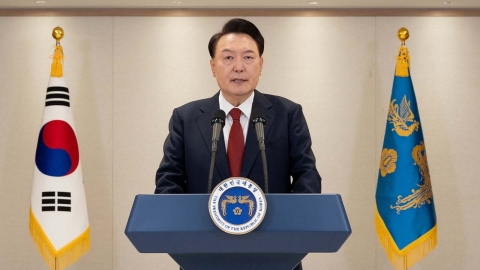 President Yoon's plan is not to comply with the third summons to the Senior Civil Servant Corruption Investigations Unit today.Investigation failed again.
President Yoon's plan is not to comply with the third summons to the Senior Civil Servant Corruption Investigations Unit today.Investigation failed again. -
Self-employed loans and overdue loans, the largest ever... were right at the "marginal level."
-
Emergency martial law and impeachment scandal...Restaurant card sales 'tuk'
-
![[Breaking News] President Yoon's plan to refuse to comply with the summons to the Senior Civil Servant Corruption Investigations Unit today.](https://image.ytn.co.kr/general/jpg/2024/1229/202412290836482869_h.jpg) [Breaking News] President Yoon's plan to refuse to comply with the summons to the Senior Civil Servant Corruption Investigations Unit today.
[Breaking News] President Yoon's plan to refuse to comply with the summons to the Senior Civil Servant Corruption Investigations Unit today.
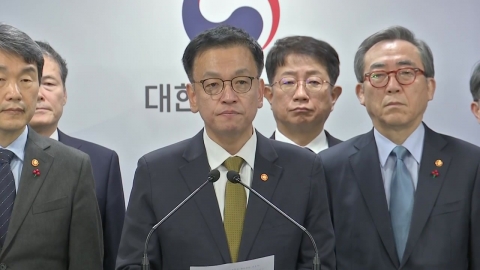
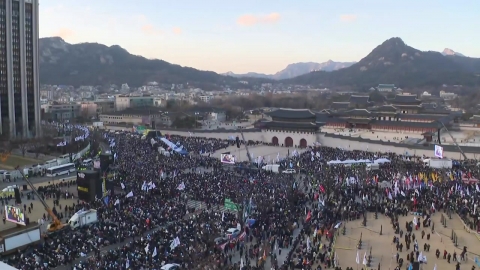
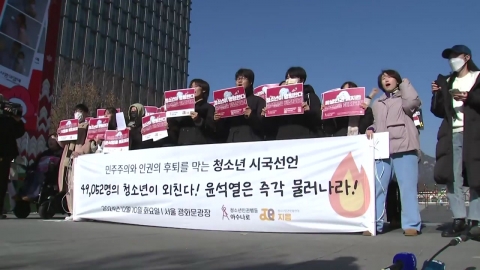
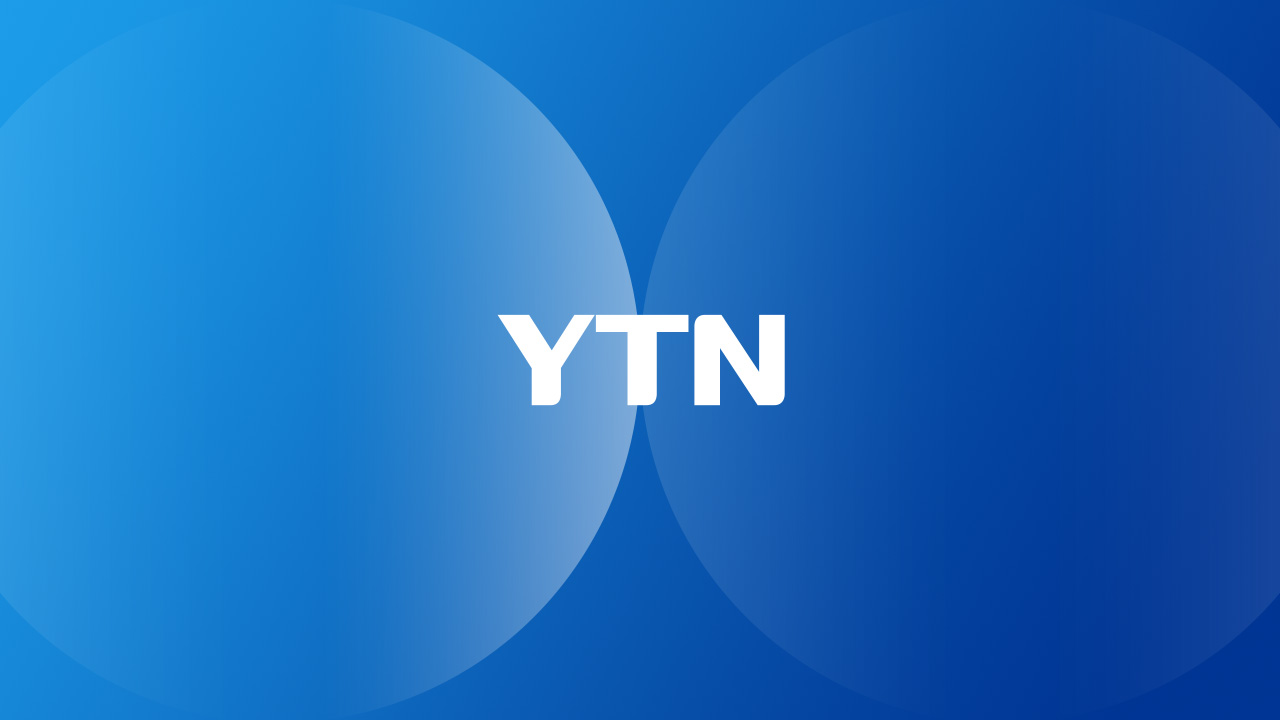
![[Y Ranking] Best fashion artist Carina, Jang Wonyoung, Ahn Yujin, Haerin, Daniel.](https://image.ytn.co.kr/general/jpg/2024/1229/202412290800015524_h.jpg)
